
of related interest
Understanding and Treating Anxiety in Autism
A Multi-Disciplinary Approach
Edited by Stephen M. Edelson and Jane Botsford Johnson
Foreword by Dr. David G. Amaral
ISBN 978 1 78775 152 1
eISBN 978 1 78775 153 8
Beating Anxiety
What Young People on the Autism Spectrum Need to Know
Davida Hartman
Illustrated by Kate Brangan
ISBN 978 1 78592 075 2
eISBN 978 1 78450 335 2
The Parents Guide to Managing Anxiety in Children with Autism
Raelene Dundon
ISBN 978 1 78592 655 6
eISBN 978 1 78592 657 0
10 Steps to Reducing Your Childs Anxiety on the Autism Spectrum
The CBT-Based Fun with Feelings Parent Manual
Michelle Garnett, Tony Attwood, Louise Ford, Stefanie Runham and Julia Cook
ISBN 978 1 78775 325 9
eISBN 978 1 78775 326 6
HELPING AUTISTIC
TEENS to MANAGE
THEIR ANXIETY
Strategies and Worksheets
using CBT, DBT, and ACT Skills
Dr Theresa Kidd

First published in Great Britain in 2022 by Jessica Kingsley Publishers
An imprint of Hodder & Stoughton Ltd
An Hachette Company
Copyright Dr Theresa Kidd 2022
All images have been reproduced with kind permission from Matthew Adams
All rights reserved. No part of this publication may be reproduced, stored in a retrieval system, or transmitted, in any form or by any means without the prior written permission of the publisher, nor be otherwise circulated in any form of binding or cover other than that in which it is published and without a similar condition being imposed on the subsequent purchaser.
All pages marked with  can be photocopied and downloaded for personal use with this programme, but may not be reproduced for any other purposes without the permission of the publisher.
can be photocopied and downloaded for personal use with this programme, but may not be reproduced for any other purposes without the permission of the publisher.
A CIP catalogue record for this title is available from the British Library and the Library of Congress
ISBN 978 1 78775 450 8
eISBN 978 1 78775 451 5
Jessica Kingsley Publishers policy is to use papers that are natural, renewable and recyclable products and made from wood grown in sustainable forests. The logging and manufacturing processes are expected to conform to the environmental regulations of the country of origin.
Jessica Kingsley Publishers
Carmelite House
50 Victoria Embankment
London EC4Y 0DZ
www.jkp.com
For my children Zachary, Asha, and Kaiah.
Acknowledgements
Like my work and therapeutic style, this book has been a collaborative effort and I am thankful to all who have provided support, encouragement, and guidance during this writing process.
Im sure my lifelong partner Karl thought (or hoped!) my writing days were over when I finished my PhD but, once again, he continuously and wholeheartedly encouraged and supported me so that I could write this book. I thank you for giving me the space and time to do this.
My nephews
A huge thank you to Matthew Adams for sharing his understanding of neurodivergence through his creative and emotive worksheet illustrations (all while adjusting to fatherhood!). A big thanks to Ethan Smith for his continual support and feedback (in all my projects) you will be a remarkable neurodivergent psychologist!
To my colleagues
Thank you to our team at the Centre of Emotional Health at Macquarie University, who are leaders in anxiety research and treatment. I am extremely grateful to Dr Michelle Garnett, who has expanded my clinical knowledge and enriched my clinical practice. Every day I am appreciative of our team at The Kidd Clinic, who are always enthusiastic about my ideas and projects and who value and strive for neurodivergent-affirming practice as much as I do.
To the autistic community
Thank you to Elaine Hatfield-White and Jonelle Fraser, two women whom I greatly respect and who have kindly shared their unique perspectives with me and reviewed the draft in my quest to make this book as neurodivergent affirming as possible. In addition, I highly appreciate the (many) autistic young people who have taken the time to provide feedback on the worksheets in this book.
Above all, thank you to my past and present clients and their families, research participants, and university students in the Curtin University (Autism) Mentoring Program, who over the years are in the thousands yet I hold each story close and work hard to hear your voices as I work and write.
I am so grateful that autistic adolescents and adults are generously sharing their lived experiences with the world, and this assists me to continually question and adjust my practice as a clinician. I am always listening.
Contents
Introduction
I first became aware of the relationship between anxiety and autism after seeing this co-occurrence in some of my own family members. The anxiety struggle was real, and often it substantially interfered with engagement in everyday activities, social interactions, and maintaining relationships. At the time, medical professionals tended to regard behaviours resulting from anxiety symptoms as characteristics of autism. Fortunately, over the past decade or more, I have seen a substantial growth in the way that autistic individuals, their parents, and supporting professionals understand and recognise the co-occurrence of anxiety with autism spectrum conditions (ASCs). In my work as both a researcher of anxiety, and as a director/clinical psychologist of an autism-specific psychology practice, the main issue that I continue to observe autistic clients needing support with is anxiety.
Most books and research in the area of autism and anxiety have focused on children and early adolescents. Therefore, the aim of my work over the years has been to fill this gap by discovering ways to effectively support autistic adolescents and young adults with anxiety management. I was not content with just understanding how anxiety presents for autistic adolescents, but I was passionate, and still am, about finding out how we can help adolescents to reduce it. Since completing my PhD in this area, both parents and health professionals ask me for practical strategies on how they can engage their young autistic adolescents in therapeutic work. In addition, autistic adolescents have frequently expressed that therapies for non-autistics have not helped them to reduce their anxiety symptoms. They have requested tools and strategies developed to suit their neurobiology. The focus of this book is to assist parents, caregivers, and professionals to more fully understand anxiety in autism and to provide practical strategies developed or adapted to purposely suit autistic adolescents and young adults in successfully managing their anxiety symptoms.
Research more generally has shown that anxiety emerging prior to 18 years of age is likely to persist into adulthood with an increased risk in regard to future depression and poor adult outcomes. These findings echo what I see in my therapeutic work with young autistic people. Unfortunately, the more established anxiety-based behaviour patterns become, the more difficult they are to change, and the more likely they are to become chronic, and continue into adulthood, along with the accumulation of other psychiatric problems. I have met many young people whose lives have become extremely limited due to their high levels of anxiety stopping them from doing what they would like to do. My hope is that we can assist autistic adolescents to manage their anxiety symptoms as early as possible so that they can live their lives in ways that are meaningful and enjoyable to them.
Next page
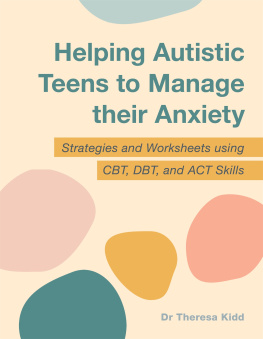
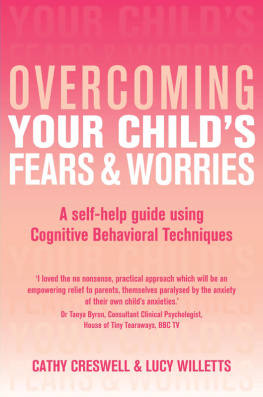
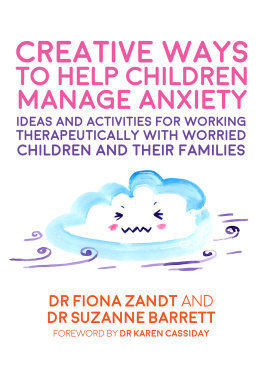
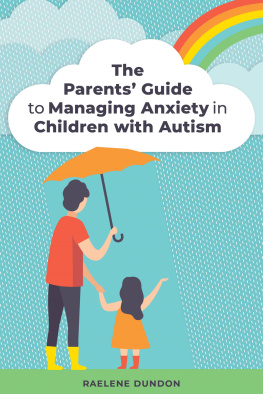
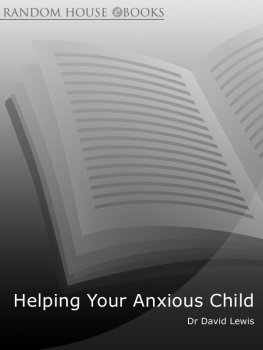
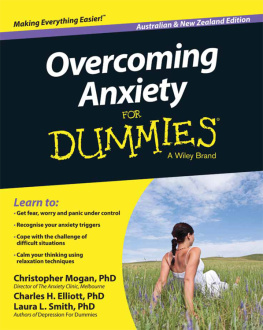

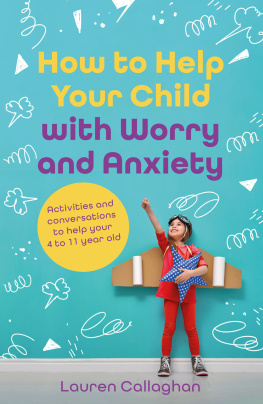
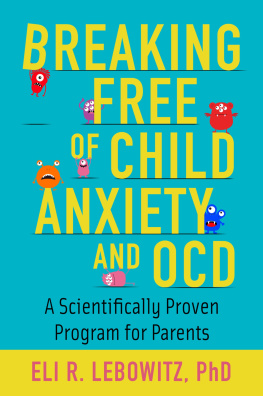
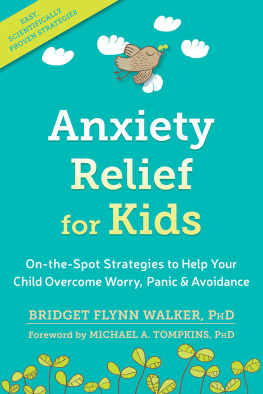
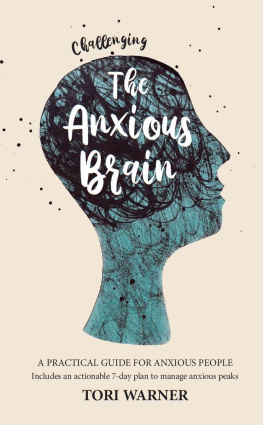
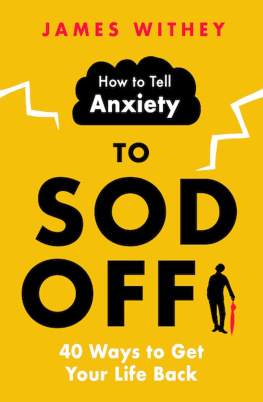
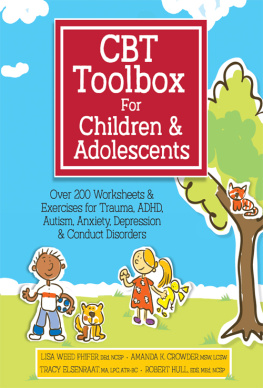


 can be photocopied and downloaded for personal use with this programme, but may not be reproduced for any other purposes without the permission of the publisher.
can be photocopied and downloaded for personal use with this programme, but may not be reproduced for any other purposes without the permission of the publisher.